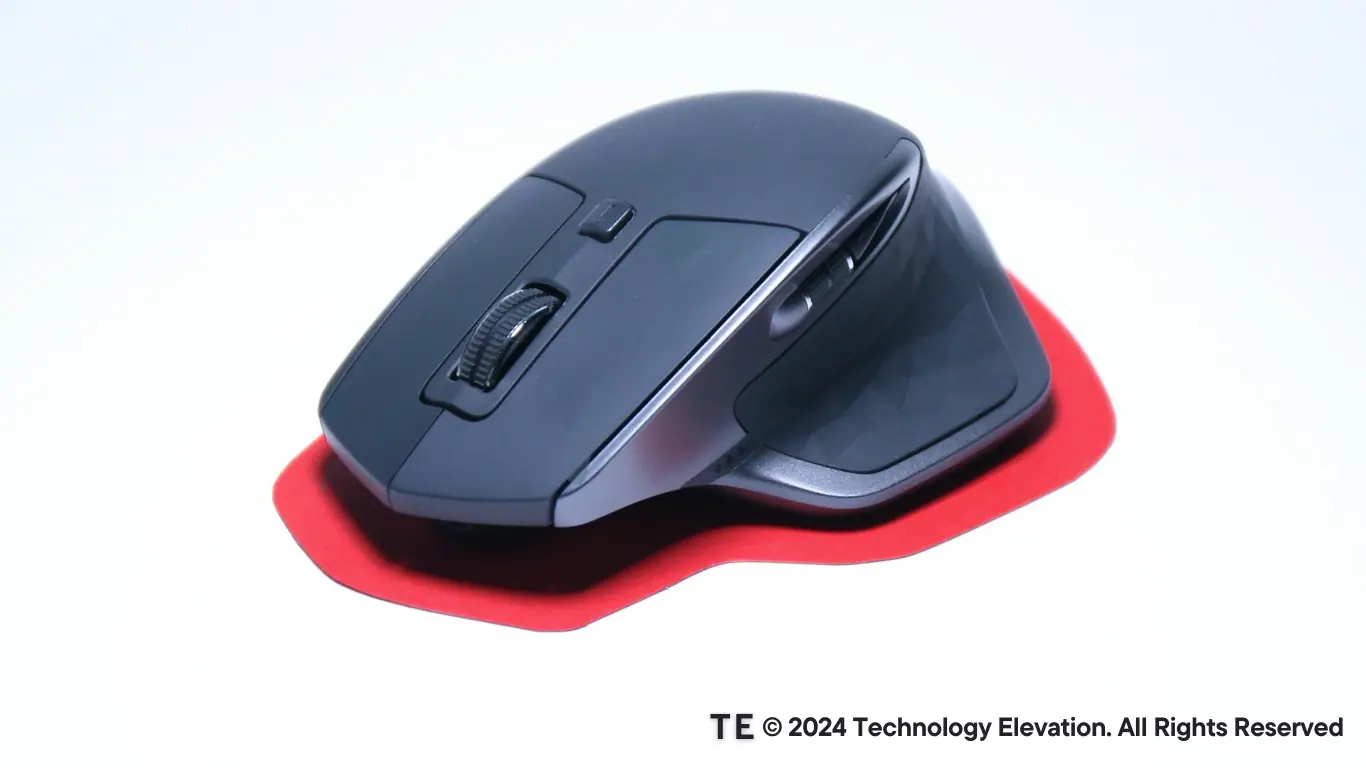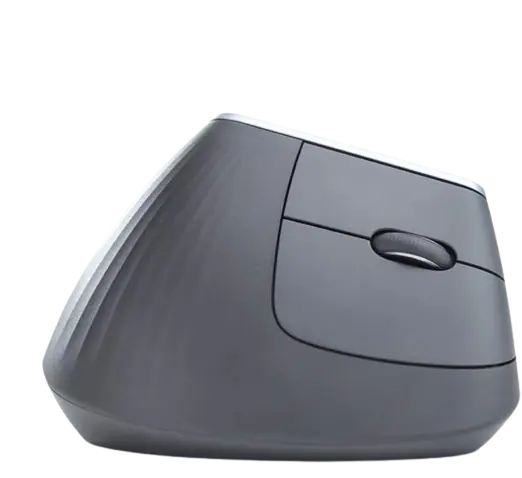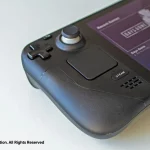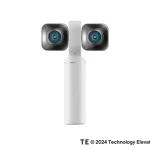
An architect needs a decent mouse to develop projects. It helps architects build complex designs with precision and accuracy. A decent mouse reduces architect carpal tunnel syndrome and other musculoskeletal ailments by improving ergonomics. Using the right mouse can also alleviate fatigue, helping architects stay productive and focused.
A good mouse lets architects move more precisely and use all of their design software, helping them develop more accurate and detailed designs. Finally, a good mouse can assist architects traverse design programs and changing designs, saving time.
The finest architect mouse has several key qualities. The mouse should be comfortable, have a precise and customizable tracking mechanism, and fit varied hand sizes and grip styles. For comfort, choose ergonomic mice. Over long use, an ergonomic mouse with a palm grip reduces hand strain and fatigue by fitting your hand naturally. An accurate mouse allows precise, effortless movements. Choose one with customizable sensitivity and speed to suit your needs.
Our Professional’s Top Picks for the Best Mouse for Architects
1. Logitech MX Vertical

The unique and ergonomic Logitech MX Vertical Mouse Architects has a 57-degree tilt for a comfortable grip and reduced wrist strain. The handshake-positioned mouse’s 4000 DPI optical sensor provides excellent architectural tracking and cursor control for smooth movements.
Logitech’s Options program lets users set functions or routines to multiple customizable buttons to boost productivity. The Logitech MX Vertical is the best architectural solution for architects seeking a perfect blend of comfort and precision due to its 2.4 GHz wireless functionality and 4-month battery life.

The MX Anywhere 3S Bluetooth, Architects Mouse offers advanced features like high DPI, quiet clicks, fast scrolling, multi-device connectivity, seamless Intel Evo integration, customizable workflow options, and quick USB-C charging, and is made with recycled plastic.
Specifications
- Brand: Logitech
- Color: GRAPHITE
- Connectivity Technology: USB
- Special Feature: Wireless, Touch Scroll, Ergonomic Design, Rechargeable
- Movement Detection Technology: Optical
Reasons To Buy
+ Comfortable for those using the fingertip grip.
+ Connects to any device via Bluetooth or its receiver.
+ Scroll wheel can be unlocked for infinite scrolling.
Reasons To Avoid
– The limited number of programmable buttons.
– No slot to store USB receiver.
2. Microsoft Surface Precision Mouse

The cordless Microsoft Surface Precision Mouse Architects is intended for professionals and power users. Its ergonomic design provides architects with long-term comfort. Wired and wireless, the mouse uses Bluetooth 4.0 LE to pair with up to three devices.
The Surface Precision Mouse uses Microsoft’s BlueTrack technology for precise surface tracking. Two side buttons and the DPI sensitivity architect range are customizable. The Microsoft Architects Mouse Center lets users customize settings. The mouse runs on two AA batteries for three months. Smooth scrolling and high accuracy make it ideal for 2D and 3D design work.
 The Microsoft Surface Precision Mouse is a versatile and advanced input device designed to meet the demands of professionals, including architects, who require precision and flexibility in their daily work.
The Microsoft Surface Precision Mouse is a versatile and advanced input device designed to meet the demands of professionals, including architects, who require precision and flexibility in their daily work.
Specifications
- Brand: Microsoft
- Color Light: Grey
- Connectivity Technology: Radio Frequency
- Special Feature: Wireless
- Movement Detection: Technology
Reasons To Buy
+ Low click latency.
+ Very well-built design.
+ Excellent performance; customizable.
Reasons To Avoid
– No Bluetooth connectivity.
3. Logitech MX Master 3S

The Logitech MX Master 3S wireless mouse for architects is renowned for its performance and features. Its ergonomic grip makes computer navigation easy and reduces muscle strain. The MX Master 3S’s Darkfield 4000 DPI high-precision sensor tracks surfaces, including glass, enabling smooth cursor control and precise movements.
With 2.4 GHz wifi and Bluetooth connectivity, the MX Master 3S offers device connectivity flexibility for Architects. The mouse’s rechargeable battery may be charged over USB-C. MX Master 3S consumers may expect long-lasting performance with a 70-day battery life.

The Logitech MX Master 3S makes working on three computers simple Architects can transfer cursor, files, and text across desktop and mouse OSes. With a 4000 DPI sensor, this Logitech mouse performs well on glass.
Specifications
- Brand: Logitech
- Series: MX MASTER 3S
- Item model number: 910-006556
- Hardware Platform: PC, Mac
- Operating System: Linux, Chrome OS, Windows 10
- Item Weight: 11.2 ounces
- Product Dimensions: 7 x 5.6 x 2.2 inches
- Item Dimensions: LxWxH 7 x 5.6 x 2.2 inches
- Color: Black
- Batteries: 2 12V batteries required. (included)
- Manufacturer: Logitech
- ASIN: B0BS9VVQPD
Reasons To Buy
+ Provides easy connectivity
+ It is extremely comfortable.
+ The mouse is very lightweight.
+ It is very accurate.
+ Value for money.
Reasons To Avoid
– Bluetooth fails when you work consistently.
4. Razer Pro Click Mini

Established brands Razer Pro Click Mini often have a history of producing reliable and high-quality architects. Created for portability and productivity, the Razer Pro Click Mini mouse is tiny and wireless.
It’s sturdy and the ambidextrous design and low profile fit most laptop bags. Before making a purchase decision, it’s advisable to read reviews and user feedback specific to the Razer Pro Click Mini to ensure it meets your preferences and requirements for programming.

A USB receiver or Bluetooth lets you pair it with up to four device programmers. It has a USB receiver storage box under the palm rest panel. It’s heavy since it requires disposable batteries despite its small size. It’s too little for larger hands to utilize confidently with any grip.
Specifications
- Brand: Razer
- Color: White
- Connectivity Technology: Bluetooth, USB
- Special Feature: Wireless, Portable
- Movement Detection Technology: Optical
Reasons To Buy
+ Scroll wheel unlocks for free scrolling.
+ Silent switches produce very little noise.
+ Feels well-built and comfortable to use.
+ Can pair with up to four devices simultaneously via Bluetooth.
Reasons To Avoid
– Too small for extra-large hands to use.
– Uses AA batteries, which may not be an advantage if you only use your mouse with a desktop computer.
5. 3Dconnexion Spacemouse Wireless

Professional 3D mice like the 3Dconnexion SpaceMouse Wireless are elegant and comfortable. Architects can pan, zoom, and rotate their designs with fluid and natural movements, enhancing their ability to visualize and refine intricate details.
It works with multiple operating systems and 3D programs in CAD, 3D modeling, and animation. The driver software, 3DxWare, improves functionality and customization, and its rechargeable battery lasts long. The wireless feature provides flexibility in movement, allowing architects to engage with their designs from various angles without being tethered to a workstation.

The 3Dconnexion Spacemouse Wireless is a specialized input device designed to cater to the unique needs of architects and other professionals working in 3D design environments. This wireless space mouse offers architects an intuitive and ergonomic solution for navigating three-dimensional spaces in CAD (Computer-Aided Design) applications.
Specifications
- Brand: 3Dconnexion
- Connectivity Technology: Wireless, Wired, USB
- Special Feature: Wireless
- Movement Detection Technology: Laser
- Number of Buttons: 2
Reasons To Buy
+ Feels very well-built.
+ Ergonomic, the right-handed shape feels comfortable to use.
+ Extremely low click latency.
+ Storage compartment for USB receiver.
Reasons To Avoid
– Heavier than dedicated FPS mice.
6. Logitech M570 Wireless Trackball Mouse

Buy Now on Amazon
Architects can use the Logitech M570 Wireless Trackball Mouse instead of a normal mouse. Its thumb-operated trackball enables accurate control and reduces wrist strain by eliminating hand movement. Through a USB receiver, the mouse connects to the user’s computer or laptop with 2.4 GHz wireless networking.
A single AA battery powers the M570’s 18-month battery life and long-lasting performance. The greatest trackball mouse for architects seeking an alternative way to cursor navigation, its ergonomic form fits the hand curves for a comfortable grasp.

The Logitech M570 Wireless Trackball Mouse provides architects with a unique and ergonomic solution for navigating digital design software and managing complex CAD projects. Its distinctive trackball design allows for precise cursor control without the need to move the entire mouse, reducing strain on the wrist during extended design sessions.
Architects can take advantage of the programmable buttons to assign shortcuts and frequently used commands with this mouse and along with it they can also use a laptop which is best for architects, streamlining their workflow and enhancing overall efficiency.
Specifications
- Brand Logitech
- Connectivity Technology Wireless
- Special Feature Alcohol-Free
- Movement Detection Technology Trackball
- Number of Buttons 5
Reasons To Buy
+ Feels very well-built.
+ Very good click latency.
+ You can program all buttons using the customization software.
+ Connects wirelessly with a USB receiver or via Bluetooth.
Reasons To Avoid
– Shape isn’t suitable for small hands.
7. ELECOM EX-G Trackball Mouse

The ELECOM EX-G Trackball Mouse is a computer mouse made by ELECOM, a renowned Japanese company that specializes in architectural computer peripherals and accessories. The ELECOM EX-G is designed with ergonomics in mind and offers a comfortable user experience during extended computer use.
With the trackball feature, users can navigate the cursor by rolling a stationary ball on the surface of the mouse, with architects providing precise control. The architect’s mouse provides flexibility in its usage by supporting both wired and wireless connectivity options.
 Architects can easily navigate complex designs with this mouse, which has a long-lasting battery and buttons that can be customized. The ELECOM EX-G Trackball Mouse brings a new level of ease and efficiency to their work.
Architects can easily navigate complex designs with this mouse, which has a long-lasting battery and buttons that can be customized. The ELECOM EX-G Trackball Mouse brings a new level of ease and efficiency to their work.
Specifications
- Brand: ELECOM
- Color Black: Ball
- Connectivity Technology: Wired
- Special Feature Ergonomic: Design
- Movement Detection Technology: Optical
Reasons To Buy
+ Comfortable for those using the fingertip grip.
+ Connects to any device via Bluetooth or its receiver.
+ Scroll wheel can be unlocked for infinite scrolling.
Reasons To Avoid
– The limited number of programmable buttons.
– No slot to store USB receiver.
8. Logitech G903 LIGHTSPEED

Logitech G903 LIGHTSPEED is a superb gaming mouse with Excellent ergonomics and build quality. Buying a Mouse bungee can make it more friendly. You can utilize any grip with either hand. The fingertip grip may make it difficult for little hands to access some buttons.
While it’s marketed towards gamers, many of its features can be beneficial for architects as well. The mouse features customizable buttons, including programmable buttons on the side.

Excellent performance, low click latency, high precision, and various customizations make this mouse great. With the included software, This can be useful for assigning shortcuts or macros and streamlining repetitive tasks in programming.
Specifications
- Brand: Logitech
- Color black
- Connectivity Technology: Bluetooth
- Special Feature: Wireless
- Movement Detection Technology: Optical
Reasons To Buy
+ Low click latency.
+ Very well-built design.
+ Excellent performance; customizable.
+ Excellent, versatile vertical wheel.
Reasons To Avoid
– Lacks receiver dongle storage for easier portability.
– No Bluetooth connectivity.
9. Logitech M720 Triathlon

The Logitech M720 Triathlon mouse is an excellent choice for architects, offering a well-rounded set of features that cater to productivity and versatility. The device is ergonomically designed with a thumb rest, a free-scrolling wheel, and L/R tilts for horizontal navigation of spreadsheets or documents.
The mouse is aptly named “Triathlon” because it’s designed to seamlessly switch between up to three devices, making it ideal for architects who work on multiple computers or platforms.

The device is nearly identical to the Costco-exclusive Logitech Precision Pro, with slight color changes. The Logitech M720 Triathlon is a reliable and efficient tool for architects who prioritize comfort, flexibility, and productivity in their daily tasks.
Specifications
- Brand: Logitech
- Color: Black
- Connectivity Technology: Wireless
- Special Feature: Wireless
- Number of Buttons: 8
Reasons To Buy
+ Feels very comfortable and well-built.
+ Multi-device pairing.
+ Fully compatible with Windows and macOS.
+ Gesture commands and infinite scroll.
Reasons To Avoid
– The CPI range can’t be adjusted.
– Low polling rate.
10. Logitech G502 X PLUS

The Logitech G502 X PLUS mouse is a compelling choice for architects, offering a blend of precision, comfort, and customizable features. Joining Logitech’s G502 lineup, the G502 X PLUS is a wireless multi-genre gaming mouse. This model is lighter than the previous Logitech G502 LIGHTSPEED, with small appearance and performance improvements, and increased battery life with off RGB lighting effects.
The programmable buttons, including the customizable DPI settings, allow programmers to tailor the mouse to their specific workflow, assigning shortcuts or macros for efficient coding.

Looks softer and less angular. The feet are better, and some buttons are easier to reach. Instead of mechanical switches for the left- and right-click buttons, this mouse has hybrid optical-mechanical switches. Logitech says these switches are more dependable and tactile than mechanical switches.
Specifications
- Brand: Logitech G
- Color: Black, White
- Connectivity Technology: Wired
- Movement Detection Technology: Optical
- Number of Buttons: 8
Reasons To Buy
+ Very well-built.
+ Remarkably low click latency.
+ Ergonomic right-handed shape.
+ Has a storage compartment for its USB receiver.
Reasons To Avoid
– Too large for smaller hands to use comfortably.
– Bulky; isn’t designed to be slipped into laptop bags or cases.
Advanced Architect Features
Beyond fundamental functions, mice have additional characteristics that improve architectural efficiency and experience.
- Accurate Scroll Wheels
Architectural software often requires smooth zooming and panning of precise drawings or 3D models using a high-precision scroll wheel.
- Programmable Radial Menus
Some modern mice have configurable radial menus that appear on-screen enabling rapid access to frequently used functions without using the keyboard.
- Gesture Control
Mice with gesture control enable users to perform complex commands or switch tools with simple hand movements, enhancing workflow efficiency.
- Application-Specific Profiles for Multiple Software
Creating application-specific profiles lets the mouse automatically switch settings for CAD and visual design software.
- Programmable Buttons
Reduce repetitive activities by specifying specific operations, such as opening a tool or executing a set of commands.
Wireless vs. Wired
When choosing a mouse for architects, you must decide whether to go wireless or connected. Both have pros and cons, depending on your needs and preferences.
Flexible:
Wireless mice are cable-free. This lets you move freely and operate from different locations without tangled cords.
Wired mice are more reliable. They link directly to your computer, eliminating signal interference and battery difficulties with a wireless mouse.
Latency:
Architects require precision and fast response times, hence wired mice are best. They have reduced latency than wireless mice, making cursor movement smoother and more accurate.
Wireless mice use batteries or rechargeable batteries. Even while modern wireless mice have better battery life, it’s still worth considering if you spend long hours without a break. Since they receive electricity from your computer, wired mice don’t have this issue.
Portability:
Wireless mice are better for mobile workers and those who utilize many devices. It connects to devices without cords or adapters.
When batteries and recharging supplies are added, corded mice are cheaper than wireless mice.
Responsiveness
Alongside DPI, the responsiveness of the mouse is crucial. Lag or jitter can disrupt the precision needed for architectural design. Wired mice generally offer the most reliable responsiveness, but advancements in wireless technology have significantly bridged this gap.
The right combination of ergonomic design and precision makes a significant difference in an architect’s daily workflow.
A mouse that aligns with the user’s physical needs and the demands of precision-intensive tasks can elevate productivity and comfort, proving to be a valuable tool in the architect’s arsenal.
Customized Buttons
The ability to provide mouse buttons for specialized purposes is one of the most useful customizing tools. Common commands like “undo,” “redo,” “copy,” and “paste” as well as more specialist ones like switching between perspectives or using certain drawing tools can be included in this.
Having customizable buttons can help an architect stay focused on the design process by minimizing the need for keyboard shortcuts.
Understanding Ergonomic Design
Ergonomic mice come in various designs, Architects each targeting different aspects of hand and wrist comfort:
- Traditional Ergonomic Mice: These often feature a contoured design that fits the natural curve of the hand, minimizing strain.
- Vertical Mice: These keep the hand in a “handshake” position, promoting a more natural wrist alignment and reducing torsional stress.
- Trackball Mice: Ideal for those with limited desk space, trackballs require minimal wrist movement, as the cursor is controlled by a stationary ball.
Tailoring to Hand Size and Grip Style
Architects should consider their hand size and grip style when choosing a mouse. A mouse that’s too large or small can cause discomfort, while the grip style (palm, claw, or fingertip) dictates the mouse shape that provides the best support.
Adjustability and Movement
A good ergonomic Architects mouse for architects should also offer adjustability in terms of weight and sensitivity, catering to different preferences and tasks. Smooth gliding over surfaces and easy access to buttons without excessive stretching are important ergonomic features.
Sensitivity
The DPI (dots per linear inch) determines how sensitive an architect’s mouse is. By adjusting DPI, you can alter the mouse’s pointer speed for precision tasks. The higher the units of the DPI your mouse contains.The more sensitive it is the faster it will work.
If you are looking for the best mouse for Architects, you should look at a mouse with high DPI sensitivity or a mouse with the ability to adjust DPI.
Portability
Portability is more often connected to those who travel a lot and use their laptop for Architects on the go. For such Architects, the small and compact shape of the mouse often acts as a convenient portable travel companion. A travel-friendly architect mouse should comfortably fit inside your laptop bag without damaging it during transport.
Such Architects should seek sturdy yet lightweight mice as they are handy and do not add any extra weight burden. In this scenario, wireless mice gain an extra advantage over wired ones.
Comfort
For Architects, comfort should be the top priority when buying a mouse. Most of the comfort goes to the design and shape of the mouse and how it fits in one’s hand. Architect mouse that rests comfortably on your hands without wrist pain can make tasks easier and faster to complete.
FAQs – Best Mouse for Architects
Q: Does the Magic Mouse work well for designing?
That’s right. The mouse is very accurate, and the touch screen works much better than a wheel for scrolling. You can also make your own gestures by using more than one finger. Once you get used to the Magic Mouse, it seems pretty strange to use a regular mouse.
Q: Do designers use mouse?
For designers, a mouse is an important tool that can help them work faster and have more control over their projects.
Q. What are the important features to consider when purchasing a mouse for an Architect?
When purchasing a mouse for an Architect, important features to consider include an ergonomic shape, rubber grip, cursor precision, wired vs wireless options, adjustable DPI/sensitivity, extra buttons, and a scroll wheel.
Q. Which mouse is highly recommended for Architects?
The Logitech MX Wireless Mouse is highly recommended for architects due to its features like a thumb wheel, multi-computer switching, and a gestures button.
Q. What is a low-cost option for a mouse with an ergonomic design for Architects?
The Anker Vertical Wireless Ergonomic Optical Mouse is a low-cost option with an ergonomic design and customizable settings.
Q. Which mouse allows for mouse movements without wrist movement and has Architect buttons?
The Logitech M570 trackball mouse allows for mouse movements without wrist movement and has Architect buttons.
Q. What is a large trackball mouse with an ambidextrous design and precision tracking?
The Kensington Expert Trackball Mouse is a large trackball mouse with an ambidextrous design and precision tracking and architecture.
Q. Which mouse provides ergonomic comfort and can be Architect to fit the user’s needs?
The Evoluent Vertical Mouse provides ergonomic comfort and can be Architect to fit the user’s needs.
Conclusion
To wrap up, High precision and ergonomic design are two factors that the finest mouse for architects and designers takes into account. Whether working on a straightforward or intricate design job, we require a mouse that provides comfort and accuracy.
Selecting the best mouse for architects involves considering various factors to ensure optimal performance and comfort during long hours of design work. Architects often require precision, programmability, and ergonomic design in their mice. After evaluating several options, it’s evident that there isn’t a one-size-fits-all solution, as individual preferences play a significant role.




GIPHY App Key not set. Please check settings